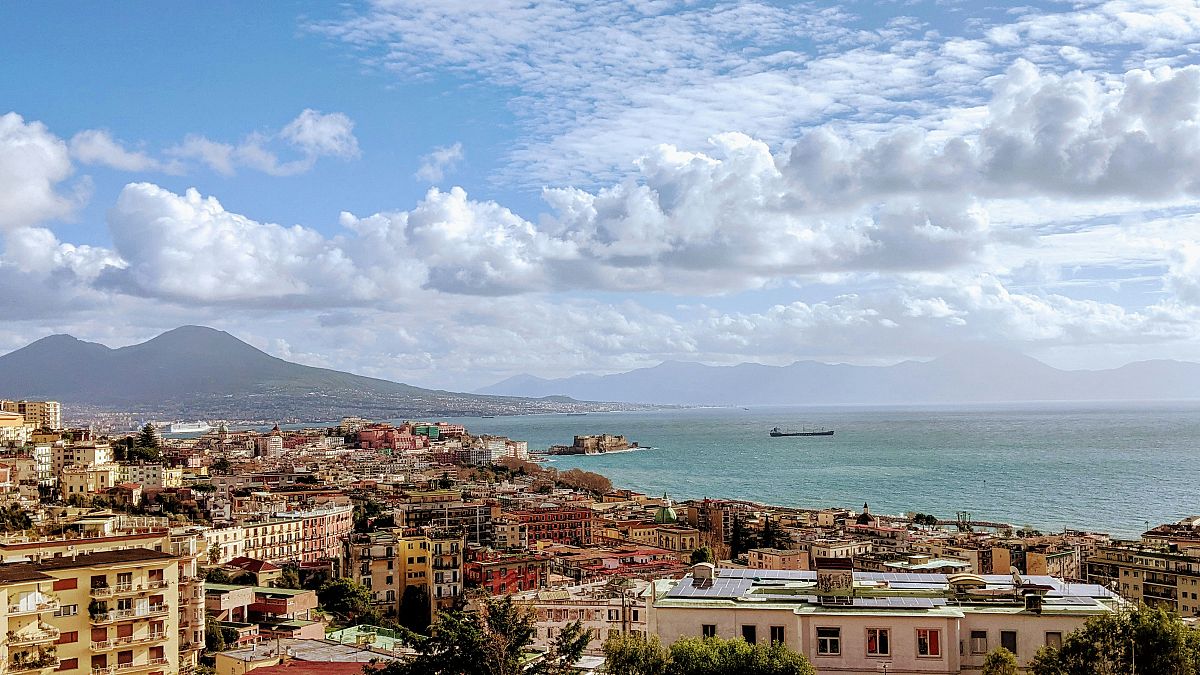An area of southern Italy near Naples has been experiencing a surge in seismic activity this week.
Campi Flegrei (Phlegraean Fields) is a volcanic caldera near Naples, Mount Vesuvius and Pompeii.
The volatile landscape has been shaken by a series of earthquake in the last few days.
Hundreds of residents and the inmates of a women’s prison in the seaside town of Pozzuoli were evacuated on Tuesday. Schools are currently closed until Friday.
The government has earmarked €500 million for evacuations and safety interventions such as strengthening buildings.
If you are visiting Naples or the surrounding area, here’s what you need to know.
What is happening on the Campi Flegrei?
The Campi Flegrei is an active volcanic crater and the largest of its kind in Europe. The last major eruption of the supervolcano was in 1538.
Now, a buildup of magma or gases beneath the surface is causing an uptick in seismic activity.
The area experiences a phenomenon known as bradyseism, where the ground rises and falls due to under-surface pressure.
Though scientists say another eruption soon is unlikely, many of the roughly 500,000 people who live in the red zone directly adjacent to the Campi Flegrei say they live in constant anxiety.
Is it safe to visit Naples and Pompeii?
The Campi Flegrei lie around 20 kilometres from Naples. The southern Italian city has been feeling the tremors but there have been no casualties and or major damage to buildings.
Vesuvius and the archaeological park of Pompeii are also close to the volcanic crater.
The red zone, where residents would be evacuated in the event of an eruption, includes the towns of Pozzuoli and Bacoli.
Some suburbs of Naples also lie in the red zone including Chiaia and Vomero. The rest of Naples lies in the yellow zone - areas at risk of significant volcanic ash falls during an eruption - while Vesuvius and Pompeii lie outside.
The UK’s Foreign Office has updated its advice for travel to southern Italy.
“There are several active volcanoes in southern Italy. National emergency planning has been updated for Vesuvius as well as the Phlegraean fields, an area that remains active and which has experienced tremors in 2024.”
It advises travellers to follow the instructions of the local authorities in the event of an eruption.
If you are planning on visiting red or yellow zones, make sure you stay updated with the latest information on the Civil Protection Agency website.
Their instructions on how to prepare for volcanic activity including lava falls, volcanic bombs and mudslides can be found here.


